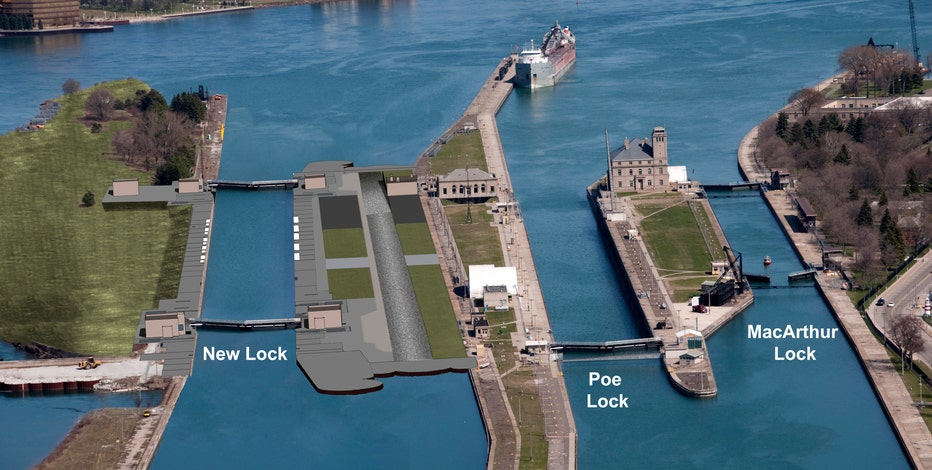
Rendering of new Soo Locks up at Sault Ste. Marie
(FOX 2) - Some serious demolition is about to take place in the Upper Peninsula.
More than 50 years since the last one opened, the Soo Locks is getting a new system built. Located on St. Mary's River near Sault Ste. Marie in Michigan's Upper Peninsula, the new Soo lock will be capable of shuttling through Great Lakes shipping traffic.
It's intended to replace the aging Poe Lock that's starting to falter due to deteriorating infrastructure. But building a new lock is no small undertaking and will take years of controlled blasts to build.
The U.S. Army Corps of Engineers is overseeing the project, which is happening over three phases: deepening the upstream approach to the new lock, rehabilitating the walls to allow vessels to tie up while they wait for other ships to pass through, and demolishing an existing lock and excavating the bedrock to build a new one.
Phase one is done while phase two will be completed in 2024. The final phase is expected to take several years.
According to presentation this week, demolition will start in late July with blasts expected about once per week in the summer. Daily smaller blasts will start in the fall.
For anyone visiting the area this summer, they could witness some of the explosions - though contractors for the job intend to keep people clear of the site when demolition is underway.
Flying rock debris, ground vibrations, and shock waves are all effects of demolitions. Anyone at the visitors center in Sault Ste. Marie during one of them will experience the equivalent of "slamming the front door of your house."
It will also sound like wind traveling at 15 mph.
MORE: Ancient life, rare plants found in Michigan's sinkholes
The total project is expected to cost $3.219 billion.
The cost is high, requiring Congressional approval for funds to be appropriated. However, unscheduled closures can have economic impacts of hundreds of millions of dollars when shipping traffic gets delayed.
That's because most of the materials from the U.S. that get turned into steel are delivered by shipping vessels in the Great Lakes. The critical infrastructure is essential to U.S. manufacturing and national security, the army corps said in a news release.
